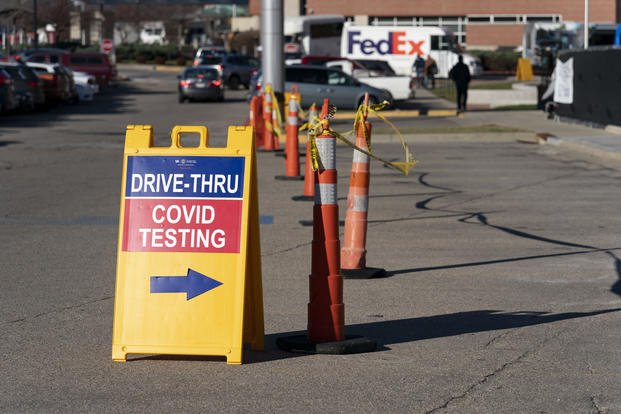White veterans received advanced therapies for COVID-19 at higher rates than Black veterans in Department of Veterans Affairs hospitals throughout the pandemic, according to researchers.
A study published Tuesday in JAMA Network Open of more than 43,000 veterans found that all patients were likely to be admitted to the ICU at VA facilities if needed, but Black veterans were less likely to receive steroids and treatments like remdesivir or immunomodulatory drugs -- medicines considered to be the top-of-the-line treatments for COVID-19.
The findings "suggest that Black veterans hospitalized with COVID-19 were less likely to be treated with evidence-based COVID-19 treatments," according to the researchers.
Read Next: Ash Carter, Former Defense Secretary Who Allowed Women into Combat Roles, Dies
Despite the disparities, Black veterans did not die at higher rates than other veterans from COVID-19, nor were they returning to the hospital within 30 days of release at higher rates, the study, led by Alexander Castro of the University of Pittsburgh School of Medicine and scientists with the VA Pittsburgh Health Care System, found.
The researchers advised the Veterans Health Administration to develop a comprehensive care plan for all its facilities that would help prevent care disparities in the future.
The study mirrors previous work at the VA on disparities in care for pneumonia among racial minority groups. The authors said the inequities for both pneumonia and COVID-19 care may be tied to differences in approaches in and between VA hospitals.
Based on their analysis, the researchers concluded that the COVID-19 treatment response of each hospital reviewed could provide insight into the overall care provided by that hospital.
VA Secretary Denis McDonough said Tuesday that, although he had not read the study, the VA outperformed the nation in vaccinating patients of color and was able to pilot treatment of another drug for COVID-19, Paxlovid, which it has been able to deliver to many veterans within five days of a COVID-19 diagnosis.
"Ensuring equitable access to the care that our veterans have earned is a fundamental priority of President Biden's, and we've taken a range of steps to ensure that that continues to be the case," McDonough said during a press conference in Washington, D.C.
More than 781,00 cases of COVID-19 have been diagnosed within the VA health system since the start of the pandemic in 2020, and 23,224 veterans have died from the illness.
While earlier studies showed that Black and Hispanic veterans contracted COVID-19 at higher rates than white veterans, the recently published research confirmed that whites and those who belong to racial minority groups died at comparable rates of COVID-19.
This may be, the authors noted, because medical treatments either weren't available at some VA facilities or they weren't effective for some patients.
The benefit of using steroids to reduce inflammation for COVID-19 has been proven, but other treatments, such as remdesivir, have a spotty record of success.
According to the research, the Black veterans in the study received steroid treatments at a 15% lower rate than whites, even though they were admitted to the ICU at roughly the same rate.
Blacks also received remdesivir at a 20% lower rate than white veterans.
This fall, the World Health Organization updated its treatment recommendations to include remdesivir for patients with non-severe or severe COVID-19, but it more strongly recommends certain immunomodulators, including corticosteroids, monoclonal antibodies and immunosuppressants, for patients with moderate to severe diseases.
The researchers noted that their analysis had flaws, including that it relied on electronic medical record data that may have had duplications or flaws, and it did not include patient preferences -- whether the patient refused care -- or the availability of medications across the system.
Nonetheless, they said, Black veterans received less care for COVID-19 treatments -- a finding that should prompt action from VA hospital leadership, they concluded.
"Patients from racially and ethnically minoritized populations, such as Black and Hispanic patients, may be less likely to receive evidence-based COVID-19 treatments than white
patients, contributing to adverse clinical outcomes," they wrote.
-- Patricia Kime can be reached at Patricia.Kime@Military.com. Follow her on Twitter @patriciakime
Related: The Long and Uncertain Path Ahead for Veterans Waging War Against Lingering COVID














